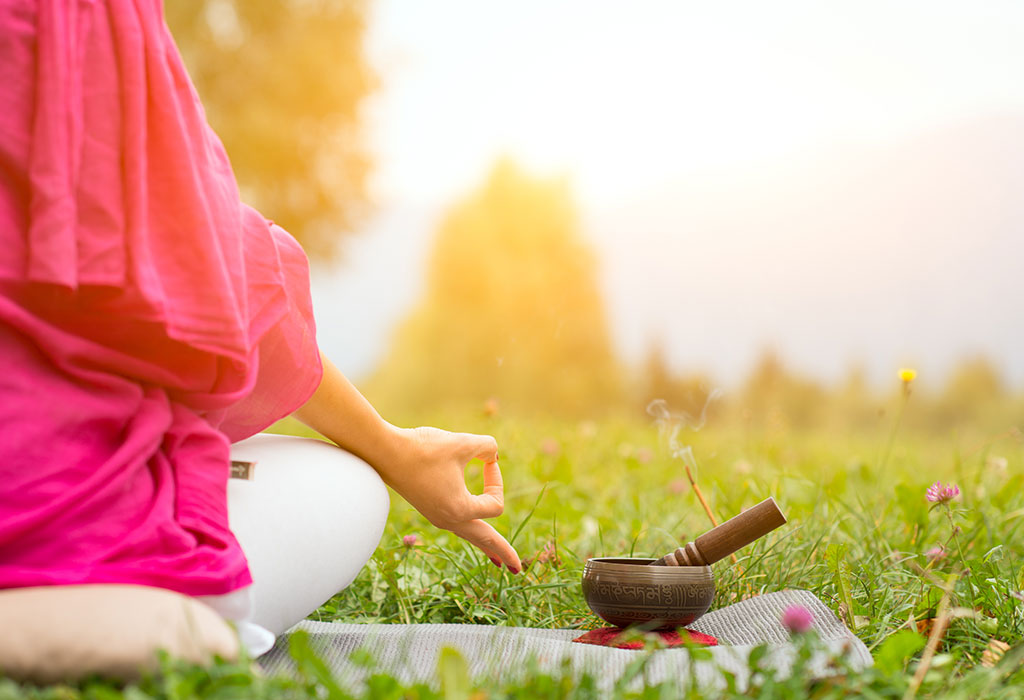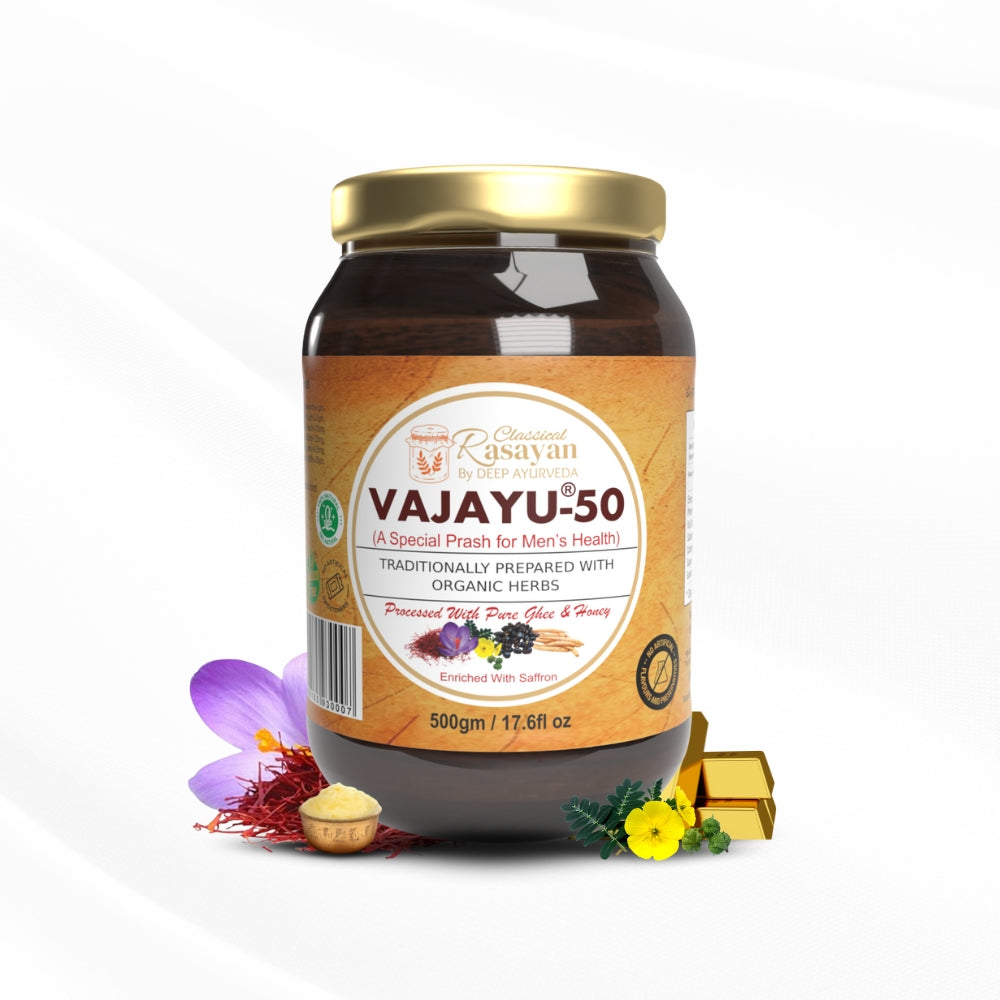According to Ayurveda, our body is governed by three fundamental energies or Doshas—Vata, Pitta, and Kapha. A state of balance among these Doshas ensures health, while their imbalance becomes the root cause of various diseases. Interestingly, these Doshas do not remain static—they fluctuate with seasonal changes. Each season tends to aggravate a particular Dosha, making the body more vulnerable to related disorders. To maintain harmony and prevent seasonal imbalances, Ayurveda recommends a disciplined seasonal routine known as Ritucharya. Ritucharya provides season-specific dietary, lifestyle, and behavioral guidelines that help in pacifying the aggravated Dosha, thereby keeping the body and mind in sync with nature.
What is Ritucharya?
According to classical Ayurvedic texts the year is divided into six ritus (seasons)-
Basant Ritu(Spring Season),Grishma Ritu(Summer Season),Varsha Ritu(Rainy Season),Sharad Ritu(Autumn Season),Hemant Ritu(Winter Season),Shishir Season(Late Winters).Ritu means Season,Charya means Routine, regimen, conduct, lifestyle hence ritucharya means seasonal routine to maintain the three body doshas in equilibrium is called Ritucharya.
Basant Ritucharya (Spring regime)-

Kapha dosha is aggravated due to the warmth and liquefaction of accumulated Kapha from winter.If not balanced, it may lead to heaviness, congestion, lethargy, and other respiratory and metabolic issues.
Ahara (Diet)-Prefer light, dry, warm, and easily digestible foods like Barley, wheat, old rice, green gram (moong dal),Bitter, pungent, and astringent tastes (tikta, katu, kashaya),Honey (natural Kapha pacifier),Spices like black pepper, ginger, turmeric, cinnamon
Avoid:Dairy, cold and oily foods, sweets, and heavy food,Excessive sleeping during the day and overeating
Vihara (Lifestyle)-Physical activity is crucial—engage in brisk walks, yoga, or light exercise to balance Kapha.Avoid day sleep, as it further aggravates KaphaExposure to mild sunlight is beneficial.
Panchakarma Regular abhyanga (oil massage) followed by udvartana (dry powder massage) helps in Kapha shodhana.Nasya and Dhoompan clears excess Kapha from sinuses.Vamana karma (therapeutic emesis) is the primary Panchakarma indicated in Basant Ritu to eliminate aggravated Kapha.
Herbs to be used in Basant Ritu-Trikatu,Tulsi,Vasa,Ginger,Honey
"वसन्ते कफवृद्धिर्भवति।
तस्मात् कफविनाशनं यत् तत्तत् प्रयोज्यम्।
तेन शीतेनाधिकं व्यायामः, रुक्षोष्णलघु आहारः।
धूमपानं, अभ्यङ्गमुद्वर्तनं, वमनं, गार्शयामश्च उपयोग्याः॥"
— Ashtanga Hridaya, Sutrasthana, Chapter 3
"In Vasanta Ritu (spring), Kapha dosha naturally increases.
Therefore, all measures that eliminate or pacify Kapha should be practiced—such as increased exercise, intake of light, dry, and warm foods, medicated smoking (Dhoomapana), oil massage (Abhyanga), dry massage (Udvartana), therapeutic emesis (Vamana), and wearing light clothing.
Grishma Ritu (Summer Regime)-
This period is characterized by intense heat, dryness, and depletion of body strength due to the dominance of Agni (sun/fire element).Vata is mildly accumulated due to dryness and heat.Pitta is in a balanced state but starts to increase.Kapha is reduced, so there’s usually lightness in the body.
Ahara (Diet) –Sweet (madhura), Bitter (tikta), Astringent (kashaya) ras pradhan food should be taken.Water-rich fruits like watermelon, cucumber, muskmelon and Cooling foods like rice, milk, ghee should be consumed.Herbal drinks: sharbat, sattu, sugarcane juice, amla juice, buttermilk, coconut water should be added in diet
Avoid:Spicy, sour, salty, fermented, and oily foods,Excessive fried and hot foods,Alcohol, caffeine, and carbonated drinks which increases heat and vaat in the body.Vihara (Lifestyle) –Avoid exertion, physical overactivity, and sun exposure during midday
Wear light, breathable cotton clothing,Use sandalwood paste, rose water, and fragrant flowers for cooling effect.Sleep during night should be adequate; daytime naps are acceptable in this season
Panchakarma-Abhyanga (oil massage) with cooling oils like chandanadi taila or coconut oil.
4.Herbs beneficial in Grishma Ritu-Shatavri,Amla,Yashtimadhu,usheer
Varsha Ritucharya (Rainy season Regime)-
Varsha Ritu (Rainy Season) is the monsoon period, typically occurring from mid-July to mid-September (Shraavana and Bhadrapada months). During this season, the environment becomes damp and cold, Agni (digestive fire) weakens, and Vata dosha becomes aggravated .
Ahara (Diet)-Laghu and easily digestible food like moong dal soup, yusha (light gruels).Use of ghee – pacifies Vata.Sour, salty, and mildly spicy foods are beneficial – pacify Vata.Use old grains like rice and barley.
Avoid heavy, oily, cold, and raw foods.
Vihara (Lifestyle)
Massage with medicated oils like Dhanwantharam tailam or Narayana tailam to pacify vaat dosh.Avoid day sleep, excessive exposure to cold wind, and fasting
Panchakarma-Abhyanga (oil massage),Basti.
Herbs used-Trikatu, Chitrak, Musta to stimulate digestion.
वर्षासु जीर्णान्नपानसेवी लघूष्णस्निग्धाहारः |
दिवास्वप्नवर्जितः स्यात् पानं जलस्य चाग्निसंस्कृतस्य ||Ashtanga Hridaya – Sutrasthana (Chapter 3: Ritucharya)
In the Varsa Ritu (monsoon season), one should consume easily digestible (jīrṇa) food and drinks,Prefer light (laghu), warm (usna), and unctuous (snigdha) food.Avoid daytime sleep (divasvapna).Drink water that has been boiled and cooled, i.e., processed by fire (agnisaṁskrta jala) to maintain digestive strength and prevent disorders.
Sharad Ritucharya(Autumn Season)
Sharad Ritu is the autumn season, occurring from mid-September to mid-November (Ashwin & Kartik months). This is the time when Pitta dosha becomes aggravated due to the heat of the sun and the previous accumulation in Varsha Ritu. Hence, Pitta-pacifying diet and lifestyle are recommended during this season.
Ahara (Diet) – Pitta-Pacifying Food-Sweet (madhura), bitter (tikta), and astringent (kashaya) taste preferred.Cool, light, and easily digestible food items.
Avoid sour, salty, spicy, and oily foods.
Vihara (Lifestyle)-Avoid overexposure to sunlight and excessive physical activity.
Practice Chandana lepana (applying sandalwood paste) to calm body heat.
Night awakening and day sleep should be avoided.
Panchakarma-Virechan and Raktmokshan is best recommended in this season to expel aggravated Pitta.
Herbs used-Avipattikar churna, Draksha, Haritaki, Amalaki
शरदि पित्तं प्रकुप्यति तस्मात् पित्तहरं सेवनम् |
तिक्तं शीतं कषायं च लघु स्निग्धं च भोजनम् || Charaka Samhita – Sutrasthana Adhyaya 6 (Ritucharya)
In Sharad Ritu, Pitta dosha gets aggravated. Hence, one should follow a Pitta-pacifying regimen, Food with sweet, bitter, and astringent tastes is advised in Sharad Ritu to pacify Pitta.Drinking cool water (not cold), especially boiled and then cooled, is beneficial in Sharad Ritu.
Hemant Ritucharya(Winter Regime)-
Duration of Hemant ritu is Mid-November to Mid-January (Margashirsha & Pausha Months)
Ahara-Heavy, warm, unctuous (snigdha) and nourishing (brimhana) foods
Sweet (madhura), sour (amla), and salty (lavana) rasa.Ghee, butter, milk, sesame oil.Urad dal, old rice, wheat, barley
Avoid-Dry, cold, and light foods,Fasting or skipping meals
Vihar-Regular exercise (vyayama) to utilize strong digestive power.Take sunbath (suryasevana) in morning for warmth and vitamin DWear warm clothes, protect from cold winds.Use warm water for bathing
Panchakarma-Basti,Abhayang
हेमन्ते शीते वायौ स्थूले भूतेऽभितो वृते |
जायते बाह्यतः शीतो जठराग्निर् विवर्धते ||Charaka Samhita – Sutrasthana 6
In Hemanta Ritu (early winter), due to the dominance of cold (śīta) and the covering by gross elements (sthūla bhūta).The external cold increases, leading to enhancement of the internal digestive fire (jaṭharāgni).
Shishir Ritucharya(Late Winter Regime)-
Duration of Shishir ritu is Mid-January to Mid-March (Magha & Phalguna Months)
Ahara (Diet Regimen)-Heavy, oily, sweet, sour, and salty foods to pacify Vata.Ghee, sesame oil, milk, jaggery,Wheat, rice, urad dal, meat soup should be used.
Avoid:Dry, light, cold, bitter, or astringent foods.Cold drinks, salads, fasting
Vihara (Lifestyle Regimen)-Abhyanga (daily oil massage) with til taila (sesame oil).Exercise (vyayama) should continue moderately.Wear warm clothing, protect from wind and cold.Bathe with hot water, apply lepa (herbal paste) if needed.Spend time in sunlight (surya sevan) for natural heat.
शिशिरे शीतगुणोत्तर्षात् वायुः प्रकुप्यति सञ्ज्वरः |लघु तिक्तं कषायं च रुक्षं भोजनमुच्यते ||Charaka Samhita – Sutrasthana Adhyaya 6 (Ritucharya)
Due to the extreme cold quality in Śiśira Ritu, Vata dosha becomes aggravated.Therefore, one should take unctuous, heavy, warm, and sweet food during shishir ritu.
Conclusion-
Ritucharya, the seasonal regimen described in Ayurveda, is a profound and practical approach to maintaining health and preventing disease by living in harmony with nature's rhythms. Each season brings specific changes in climate that influence the balance of doshas (Vata, Pitta, Kapha) in the body. By adjusting our diet, lifestyle, and routines according to seasonal changes, we can enhance immunity, improve digestion, and maintain physical and mental well-being.






